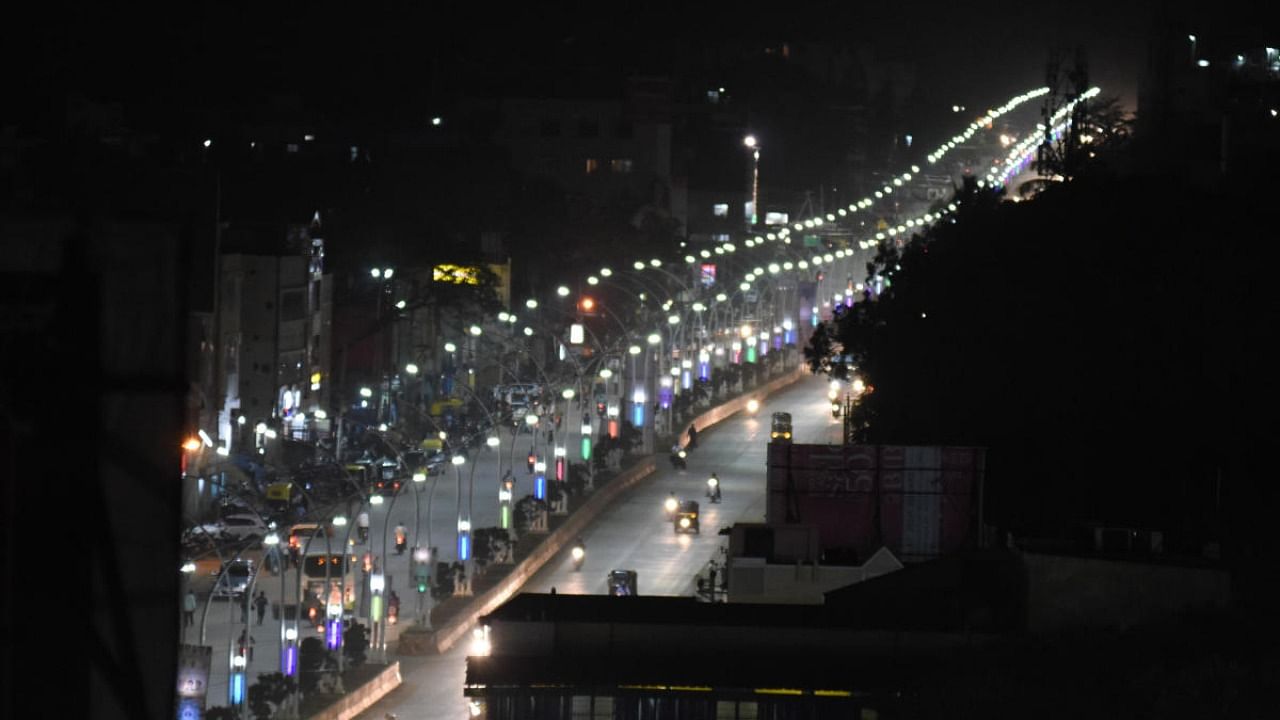
The government’s ambitious plan to instal LED streetlights in 10 major cities with the hope of saving crores of rupees of public money is yet to take off, more than two years after it was put in motion.
LEDs streetlights have been installed in Tumakuru only and the plan appears to be moving slow in nine other cities.
The project to replace all street lights with LEDs in the 10 city corporations was approved in March 2018. Authorities say the project will lead to energy savings of 40%, translating to crores of rupees every year.
Ten city corporations - Tumakuru, Shivamogga, Mangaluru, Davangere, Belagavi, Hubballi-Dharwad, Mysuru, Ballari, Vijayapura and Kalaburagi - will have LEDs replacing the conventional street lights under public-private partnership (PPP).
But according to information tabled by the government in the Assembly recently, 22,104 street lights have been changed in Tumakuru only.
Process underway
In Ballari, Vijayapura and Kalaburagi, the government’s empowered committee approved the project as recently as January this year. In Mysuru, the tender process is underway.
In Hubballi-Dharwad, Belagavi, Davangere and Mangaluru, letters of acceptance have been issued to the contractors and the contract agreements are being finalised. In Shivamogga, the contract agreement has been inked and “work is in progress,” the government said.
“We have expedited this,” urban development principal secretary (municipalities and urban development authorities) Tushar Girinath told DH.
“In the bigger city corporations, the tender process and technical evaluation are over. Some demonstration has to be done. We’ve asked them to speed it up,” he said.
Initially, replacing conventional street lights with LED was approved for BBMP limits. It was later decided to extend this to city corporations across the state. LEDs are considered energy-efficient and environment-friendly with reduced carbon dioxide emissions.
Under this project, LED street lights have to be installed within eight months from the issue of work orders and the private players have to maintain them for seven years.
According to Girinath, the project is being implemented on “something like a deferred annuity” model.
“The capital investment and maintenance will be done by the private player. The government, because we’re saving on energy, will pay them every year. That’s the only cash outgo,” he said.
